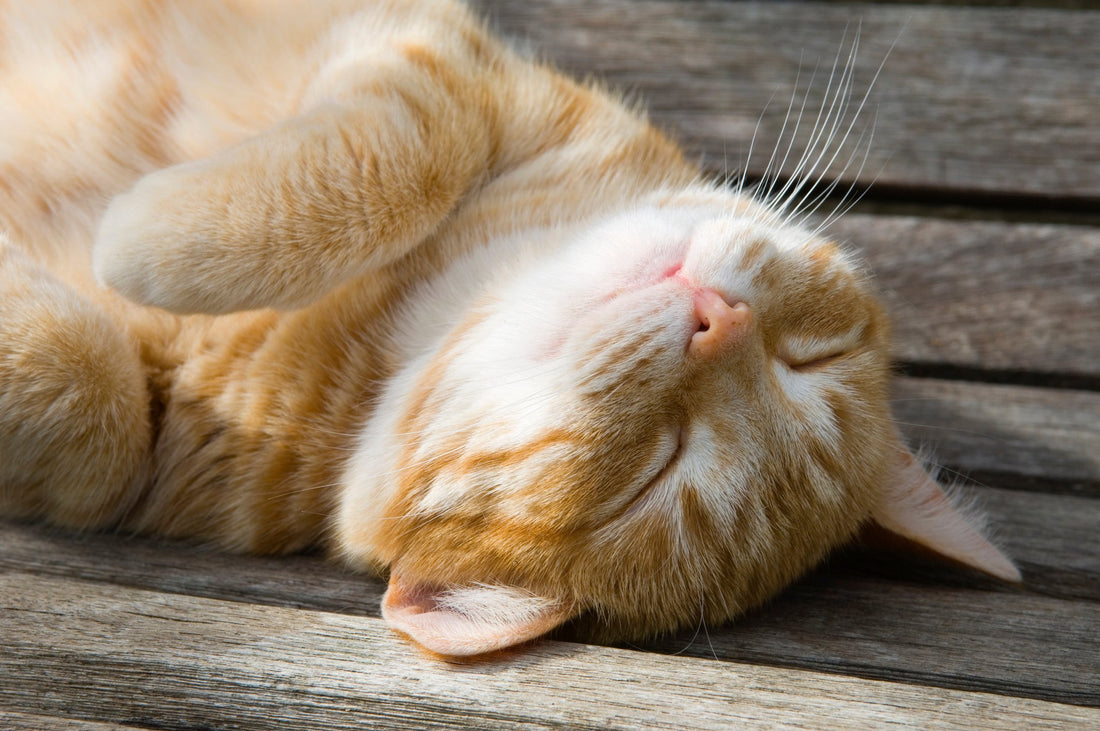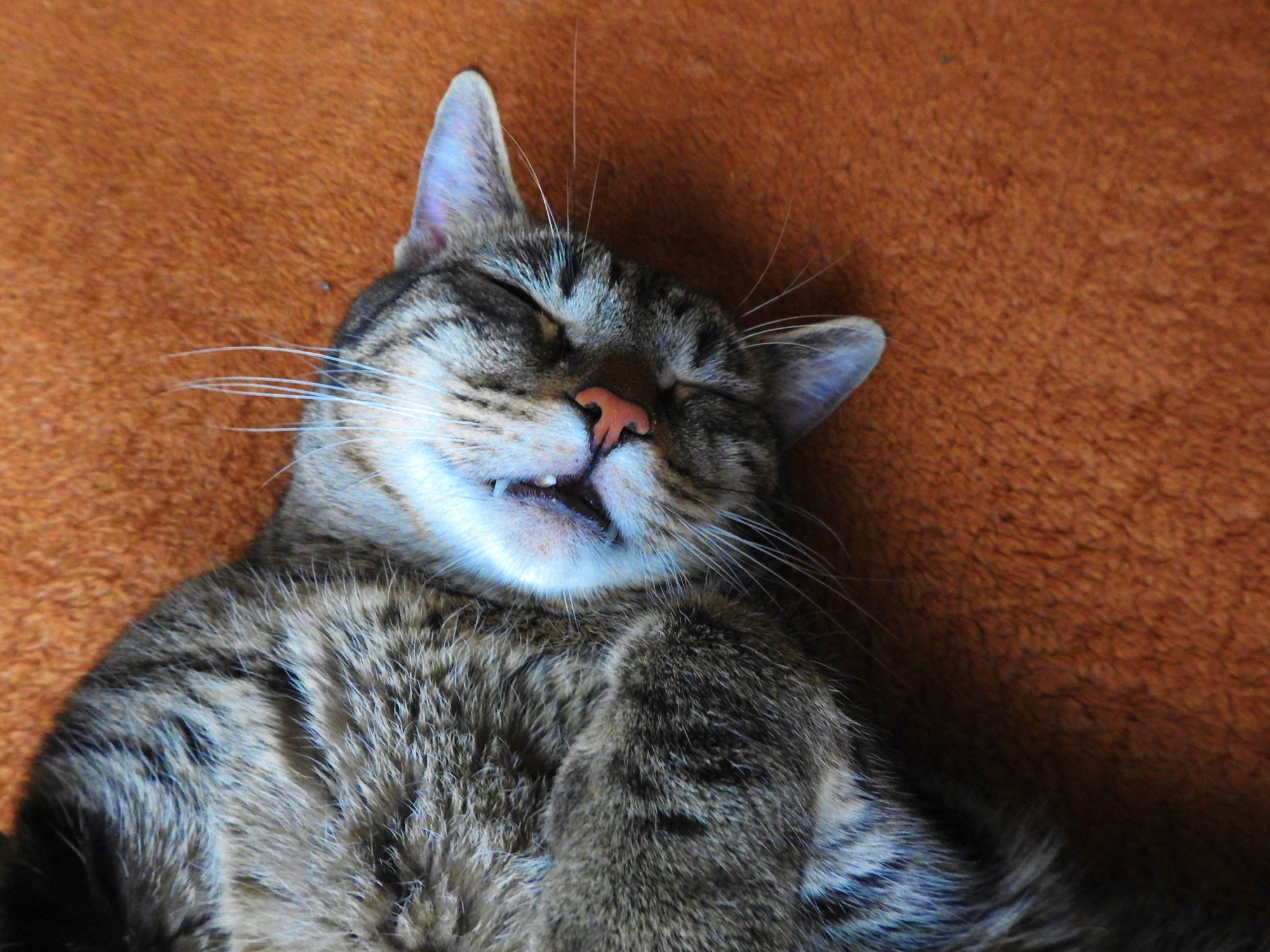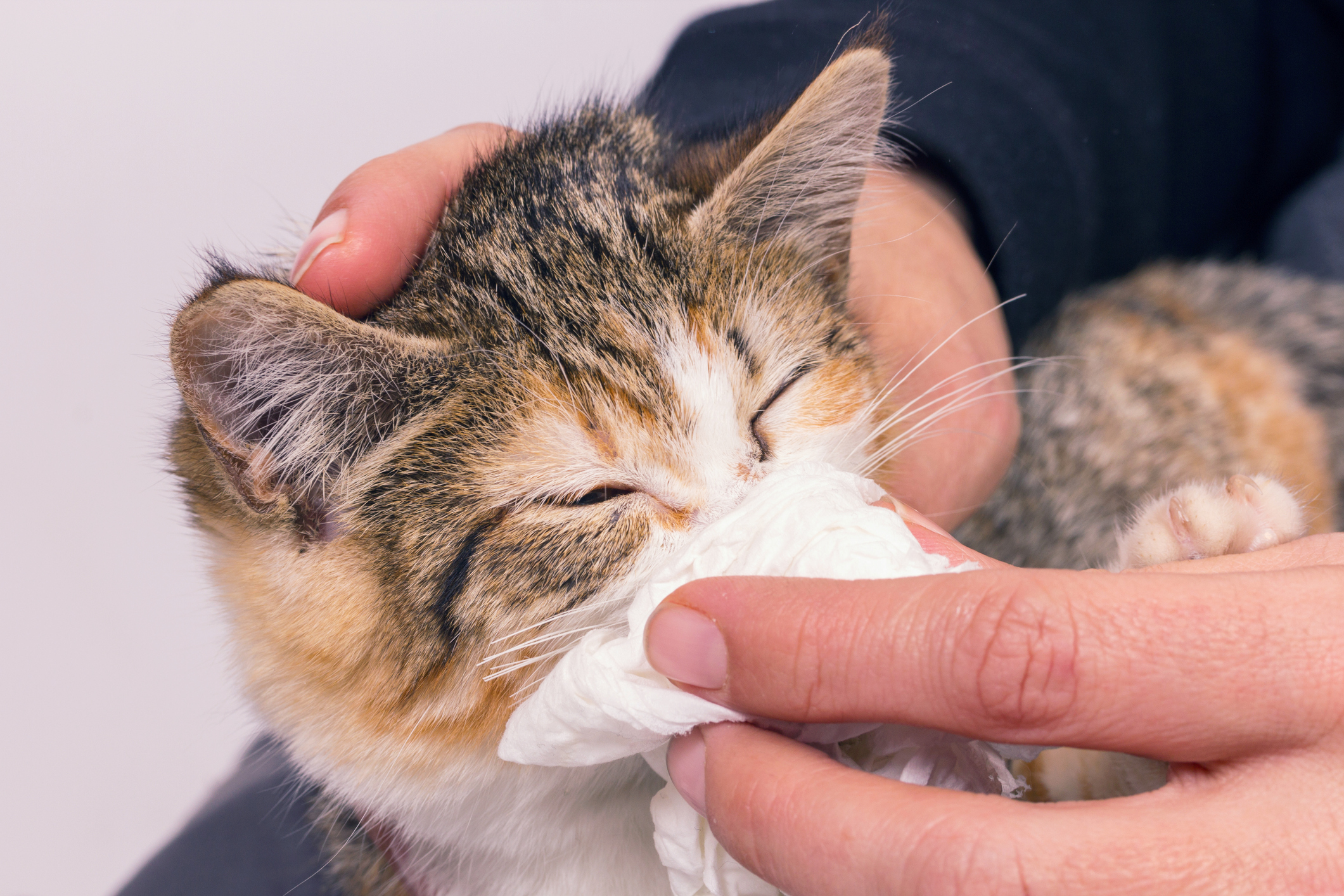
Is My Cat's Snoring a Sign of a Health Problem?
Cat owners are used to a lot of sounds coming from their furry friends. Meows, cries, trills and purrs are all everyday occurrences in most households. But one noise many pet parents don’t always expect from their tiny furballs is snoring.
When your cat begins to snore, you may be concerned that they’re having trouble breathing. However, in many cases, cat snoring is just as normal as a dog or human snoring! While most kitty snores are perfectly normal, though, there are some instances where you’ll want to be on the lookout for signs of a breathing problem.
When cat snoring is normal
Snoring happens when the tissues of the upper airway—the nose, throat and back of the mouth—become very relaxed and vibrate when your cat breathes. These vibrations create noise, which are the gentle (or not so gentle) snores your kitty lets out while they’re getting some shut-eye. Louder breathing sounds, however, may be caused by partial obstructions of the airway.
For many cats, snoring is perfectly normal, and they’ll snore gently every time they snooze. Occasional, louder snoring might be caused by the position your cat is laying in. Cats can sleep in some pretty strange positions, some of which might restrict air flow and cause sounds more than others.

Additionally, some cat breeds that have flatter faces, such as Persian cats, are more likely to snore because of the shape of their nostrils, nose and throat. Overweight cats tend to snore more, as well, because fat accumulates in the tissues around the airways. Losing weight may help your cat breathe more easily and snore less.
When cat snoring isn’t normal
However, there are some instances in which snoring is not normal for cats and may actually be indicative of a health problem. This abnormal snoring is often not snoring at all, but noisy breathing caused by significant airway obstructions.
Conditions that affect the nose and throat, including upper respiratory infections, asthma and chronic nasal inflammation, may cause loud breathing during sleep. Mucus and inflammation can create their own kinds of blockages in the nose that restrict air flow, particularly when your kitty is laying down. Persistent disruptions to air flow in the nostrils might be caused by polyps, tumors or foreign objects in the nose or throat.
If your cat suddenly begins snoring when they never have before, it’s normal to be concerned. A random onset of snoring might necessitate a trip to the vet to ensure everything is fine with your cat’s breathing. Additionally, snoring that progressively gets louder or more pronounced, as well as snoring that is accompanied by other symptoms, should be discussed with your vet.
What about noisy breathing?
What is more concerning than snoring is noisy breathing while your cat is awake and moving around. Cats should not have to work hard or make noise to breathe—especially not while resting. If your cat is panting, wheezing or breathing heavily, it may be suffering from a breathing issue. Keep an eye out for nasal discharge, coughing and mouth breathing as possible symptoms of a health problem.

Quite a few things can cause breathing problems in cats, whether they are asleep or awake. Some of the most common include:
- Upper respiratory infections: Typically caused by bacterial or viral pathogens, upper respiratory infections can lead to sneezing, coughing and nasal or ocular discharge. Immune support and antibiotics may be necessary to alleviate your cat’s symptoms.
- Asthma: Cats can develop allergies to airborne particles that manifest as asthma—chronic inflammation of the lungs and airways. If an asthma attack is triggered by an allergen, stress or other health condition, your cat may wheeze and have trouble breathing due to a buildup of mucus.
- Foreign objects: If a foreign object gets into your cat’s nostrils or the back of the throat—no matter how small—it can obstruct the airway and make breathing more difficult. Additional symptoms may include noisy breathing, nostril inflammation and coughing.
- Heart or lung conditions: Heart problems in cats, including heartworm or heart disease, may lead to fluid accumulation in the lungs. Lung diseases like pneumonia can also make it difficult for your cat to breathe. Cats suffering from these problems may experience labored and noisy breathing and coughing.
If you discover that your cat’s breathing patterns have changed recently or that they have developed symptoms like coughing or sneezing alongside their snoring, contact your veterinarian. They will run tests to determine whether your kitty has an underlying health problem that is making it difficult for them to breathe.
Otherwise, if your kitty has always snored gently and doesn’t present additional symptoms, it’s more than likely that they’re just sleeping soundly!


